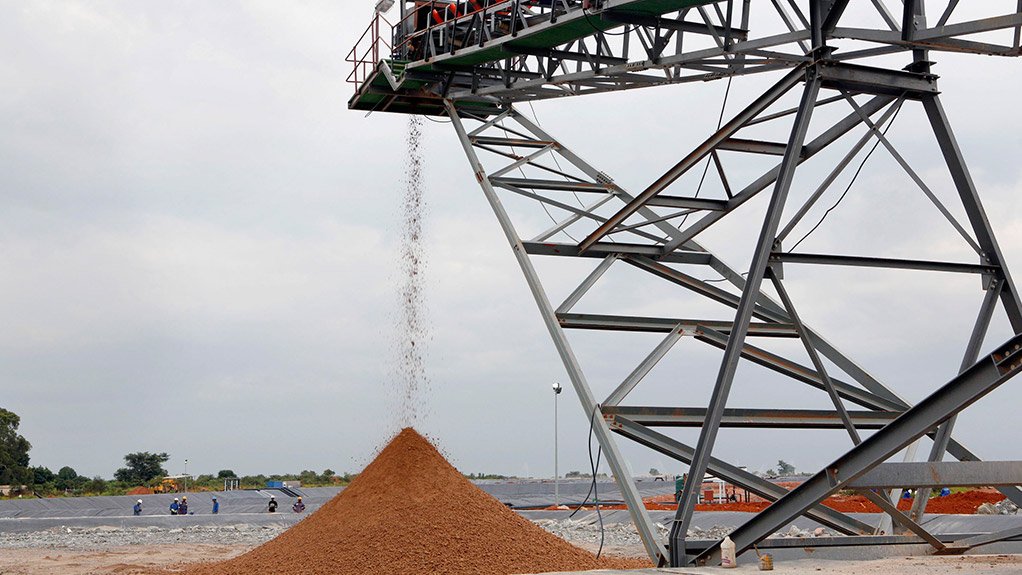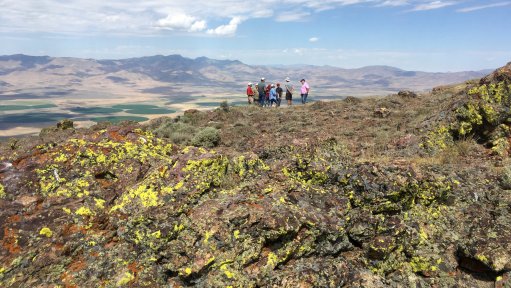Minerals royalty tax regime to remain in force – Zambia’s new leader



PRECARIOUSLY PLACED Increased mineral royalty taxes amid low commodity prices will jeopardise the economic viability of many mining operations
LACKING CERTAINTY The trend in copper prices “is, has been and will most likely remain highly unpredictable”
Incoming Zambian President Edgar Lungu has averred that the country’s controversial new minerals royalty tax regime is there to stay.
“Government’s desire to ensure companies pay the correct taxes will continue,” he said shortly after being sworn in last month. He was elected to complete the term of Michael Sata, who died in October and was replaced in an acting capacity by Guy Scott.
However, during a panel discussion at research and investment advisory firm Frontier Advisory’s 2015 Africa Outlook conference, held in Johannesburg last month, investment banking firm Renaissance Capital sub- Saharan Africa economist Yvonne Mhango warned that legislative uncertainty and increased minerals royalty taxes, such as those implemented in Zambia, during a time of low commodity prices, would jeopardise the economic viability of many mining operations.
The new royalty tax regime, which came into effect on January 1, increased underground mining royalties from 6% to 8%, with opencast mining operations being charged a 20% minerals royalty.
She pointed out that, in 2008, the Zambia government passed the Mines and Minerals Act, which subsequently introduced a tax windfall regime that significantly increased the tax rate on mines from 31% to 47%.
However, the windfall tax regime was withdrawn in the 2009 Budget, after the policy had been heavily criticised by mining companies, with thousands of Zambians left without work owing to mines closing down and significant reductions in staff at the operations that did manage to continue operating during this period.
According to government authori- ties, the decision to revoke the tax windfall regime was largely a result of the adverse impacts of the global financial crisis that started in 2008 and that threatened more job losses and mine closures.
“I hope that Zambia will learn from this experience and ensure that it does not repeat previous mistakes, which could once again result in mine closures and many Zambians being unemployed,” stated Mhango.
Additionally, the Zambia Chamber of Mines (ZCM) issued a statement highlighting that more than half of Zambia’s copper production was lossmaking following a consistent decline in the international copper price.
“As of January 14, 2015, the base metal was trading at $5 353.25/t, its lowest since July 2009,” according to business news agency Bloomberg.
ZCM economist Shula Shula added in the ZCM media release that the commodity price slump, in addition to structural factors, legacy issues and the new tax regime, “will severely penalise the vast majority of Zambia’s mining operations”.
“Profitability is derived from total revenue minus total costs. Most of Zambia’s mines are high-cost operations, significantly higher than other copper mining provinces in the world. At the current copper price, nine out of eleven of the country’s large mines, both opencast and underground, are uneconomical to operate,” he stated.
Shula said, considering that the mining industry accounted for more than 86% of Zambia’s foreign direct investment and about 80% of exports, “these figures are alarming for the state of the country’s economy”.
He said government’s taxation of the mining industry must take into account the collection of equitable revenue required for national development while ensuring the sustainability of the sector as a contributor to national development.
“An excessive tax burden on the mining industry, without taking into account the cost of production and unpredictability of the copper price trend, will inevitably lead to mine closures in the short and medium term,” stated Shula.
He noted that the trend in copper prices was, had been and would most likely remain highly unpredictable.
“This is because copper is a base metal which is heavy, plentiful and cheap, when, . . . compared with precious metals such as gold and silver. As such, it is purchased by consumers when required, making it difficult to speculate on future prices,” Shula added.
Moreover, he emphasised that the new tax regime would be very complex to administer, as mines often have openpit, underground and processing operations at the same site.
[With] declining copper prices and a new tax regime, Zambia will move into unexplored fiscal territory.
“Government must, therefore, reverse its decision to introduce the new tax regime that places a higher minerals royalty as a final tax and instead institute dialogue with all stakeholders to come up with an equitable fiscal policy which is consistent with promoting mining investment and generating adequate revenues for the treasury on a sustainable basis,” Shula concluded.
Comments
Press Office
Announcements
What's On
Subscribe to improve your user experience...
Option 1 (equivalent of R125 a month):
Receive a weekly copy of Creamer Media's Engineering News & Mining Weekly magazine
(print copy for those in South Africa and e-magazine for those outside of South Africa)
Receive daily email newsletters
Access to full search results
Access archive of magazine back copies
Access to Projects in Progress
Access to ONE Research Report of your choice in PDF format
Option 2 (equivalent of R375 a month):
All benefits from Option 1
PLUS
Access to Creamer Media's Research Channel Africa for ALL Research Reports, in PDF format, on various industrial and mining sectors
including Electricity; Water; Energy Transition; Hydrogen; Roads, Rail and Ports; Coal; Gold; Platinum; Battery Metals; etc.
Already a subscriber?
Forgotten your password?
Receive weekly copy of Creamer Media's Engineering News & Mining Weekly magazine (print copy for those in South Africa and e-magazine for those outside of South Africa)
➕
Recieve daily email newsletters
➕
Access to full search results
➕
Access archive of magazine back copies
➕
Access to Projects in Progress
➕
Access to ONE Research Report of your choice in PDF format
RESEARCH CHANNEL AFRICA
R4500 (equivalent of R375 a month)
SUBSCRIBEAll benefits from Option 1
➕
Access to Creamer Media's Research Channel Africa for ALL Research Reports on various industrial and mining sectors, in PDF format, including on:
Electricity
➕
Water
➕
Energy Transition
➕
Hydrogen
➕
Roads, Rail and Ports
➕
Coal
➕
Gold
➕
Platinum
➕
Battery Metals
➕
etc.
Receive all benefits from Option 1 or Option 2 delivered to numerous people at your company
➕
Multiple User names and Passwords for simultaneous log-ins
➕
Intranet integration access to all in your organisation




















